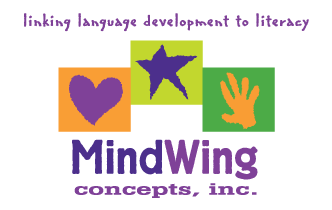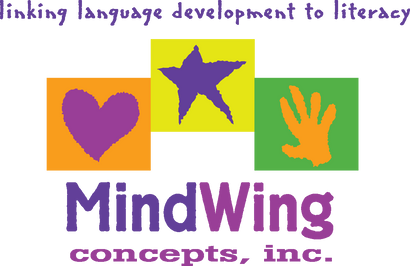Secure Checkout. FREE SHIPPING for Continental U.S. Orders over $60.
Menu
-
- Home
-
About Us
-
The Approach
-
Linking Language & Literacy
-
MindWing Learning
-
Learning Resources
-
SHOP
-
Blog
-
- About MindWing
- Our People
- Contact Us
- Your Account
- Login
-
United States (USD $)

Secure Checkout. FREE SHIPPING for Continental U.S. Orders over $60.
Tool Tuesday: Summer Study Series Part 4—“A Recent Look at Evidence-Based Expository Intervention”
by Sean Sweeney August 26, 2024 2 min read
 In this 4th and final entry in the Summer Study Series for 2024, we will circle back to the expository side of language.
In this 4th and final entry in the Summer Study Series for 2024, we will circle back to the expository side of language.
Teresa Ukrainetz has always been one of my go-to experts on a number of aspects of discourse, and is someone I fanboy about when I see her at ASHA Conventions. She also literally wrote the book on Contextualized Language Intervention, which is a foundational concept in helping me achieve flow in my work—both a flow of activities in context and the positive psychological sense of flow.
It was with some excitement that I discovered her recent article:
“Evidence-Based Expository Intervention:
A Tutorial for Speech-Language Pathologists” (2024).
Some key points:
- TIL (Today I Learned, in Gen Z parlance) narrative versus expository language can be thought of as “particularizing vs generalizing” in nature. Narrative tends to describe an instance or event that happens to a particular person/character, where “expository forms take a generalizing stance to the information they transmit (e.g., how a combination of ingredients and heat causes a cake to rise).”
- Ukrainetz affirms the 6 subgenres that are generally considered to be pieces of the “pie” of expository language (description, enumeration/list, sequence or procedure, compare–contrast, and explanations involving problem–solution or cause–effect) and also considers persuasion and argument, all supported by visuals in MindWing’s ThemeMaker, Icons and Magnets, Digital Icons, and subsequent resources.
- The article explores a number of considerations including increasing expectations of expository language competence as the academic years progress, differences in syntax and semantics in expository text in general and within content areas specifically (disciplinary literacy) and the importance of supporting expository skills in early grades.
- Although she describes this area as difficult to research, Ukrainetz focuses on the evidence-based support for interventions that will be familiar and confirmatory for everyone reading this blog, in particular a focus on text structure and organization. The studies cited here also underscore the important role of graphic organizers in helping students gain skills in comprehending and producing expository texts, again supporting the resources linked above!
- Text structures are also wrapped into an additional area for which we have evidence, learning strategies. Ukrainetz describes a number of strategies endorsed by the National Reading Panel as having a “strong scientific basis”: “comprehension monitoring (readers being aware of their own understanding of the text), question generation (readers asking themselves questions about the text), and summarization (readers integrating ideas from the text).”
- Ukrainetz concludes with a plethora of helpful specifics for SLPs and others tackling this area of intervention, including effective “structural and interactive” features of instruction (how you organize/how you pragmatically implement your activities) and her own Sketch and Speak strategy, which to me Just Makes Sense.

Example of Sketch and Speak strategy with “pictography” of descriptive aspects of an axolotl.
As a tech tie-in for this month, explore ChatGPT to support you in creating materials for intervention. You can ask ChatGPT to write you any kind of expository paragraph, on any topic. You can further query the tool to increase or decrease the complexity of the language, and of course copy and paste to edit the resulting text to suit your needs.

Sean Sweeney
Sean Sweeney, MS, MEd, CCC-SLP, is a speech-language pathologist and technology specialist working in private practice at the Ely Center in Needham, MA, and as a clinical supervisor at Boston University. He consults with local and national organizations on technology integration in speech and language interventions. His blog, SpeechTechie (www.speechtechie.com), looks at technology “through a language lens.” Contact him at sean@speechtechie.com.
Leave a comment.
Comments will be approved before showing up.
